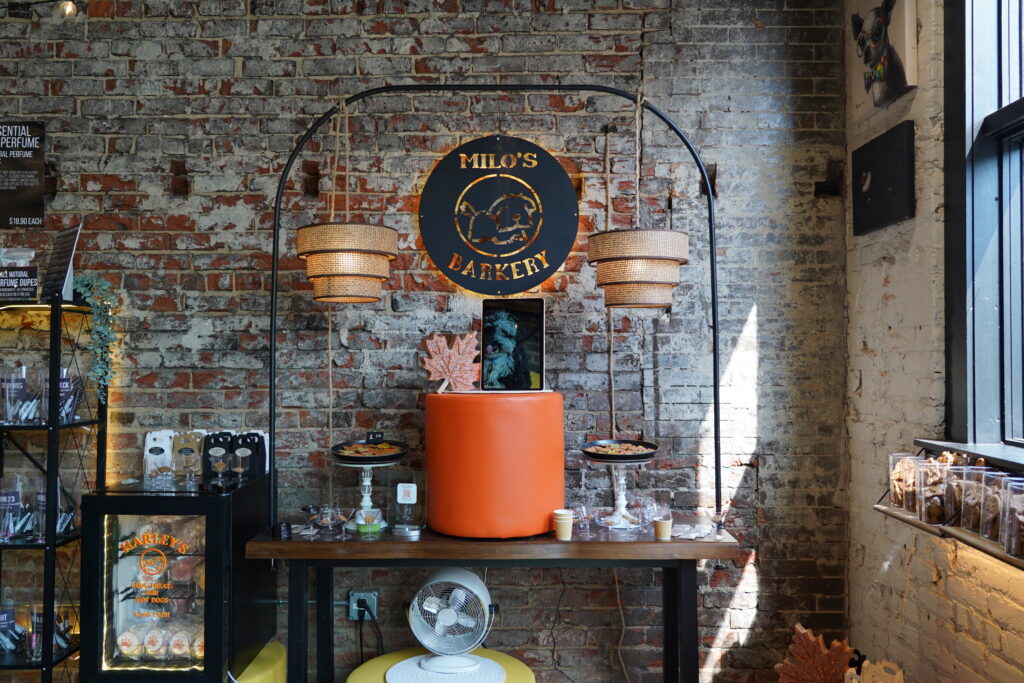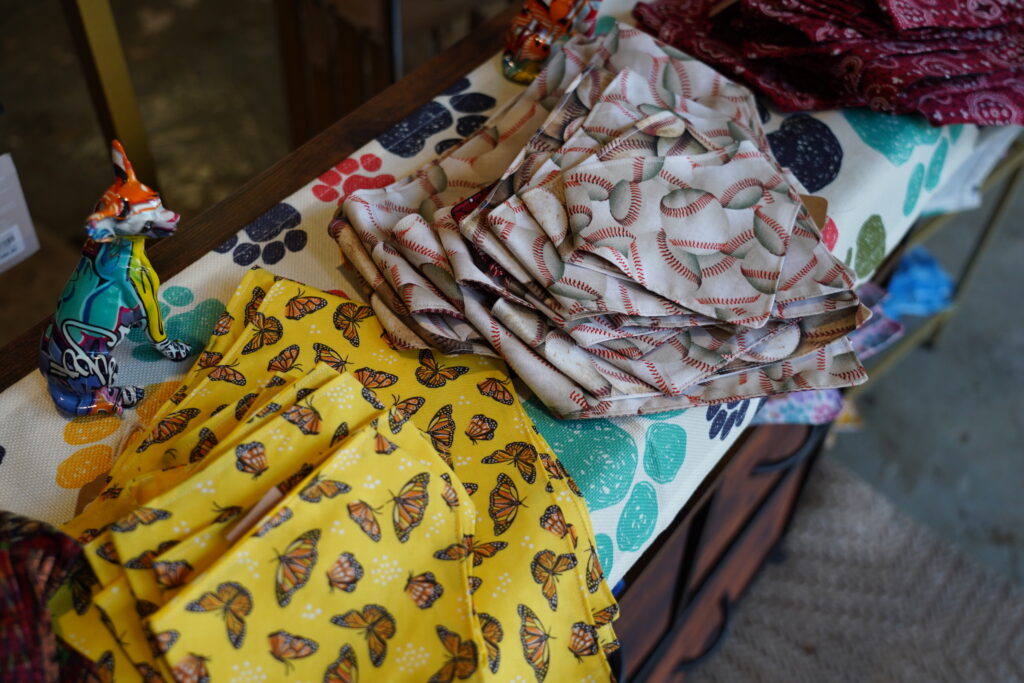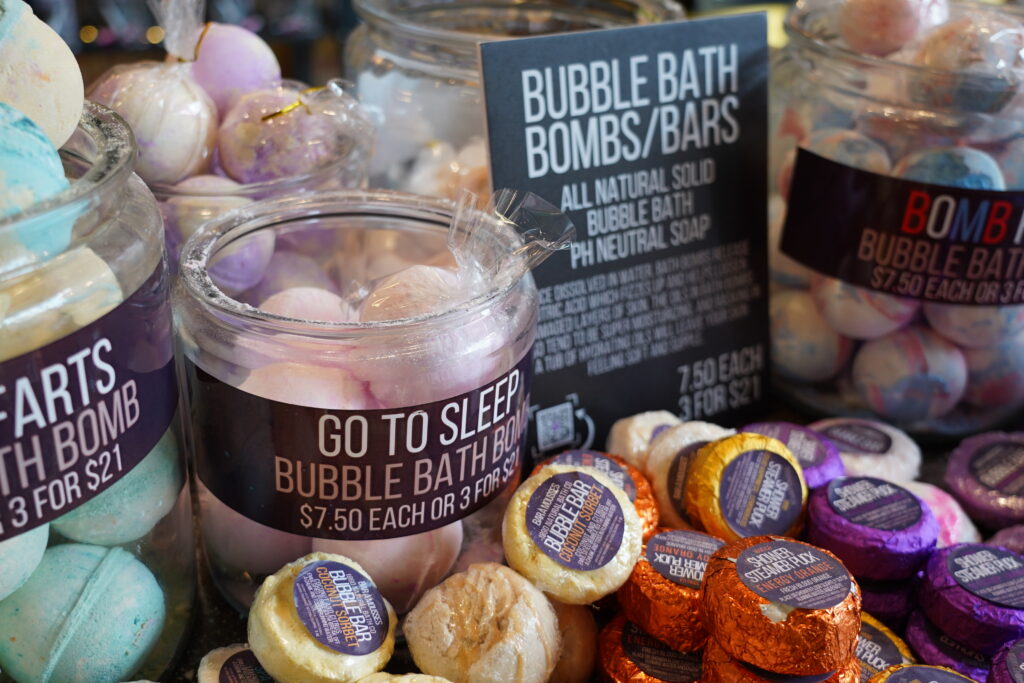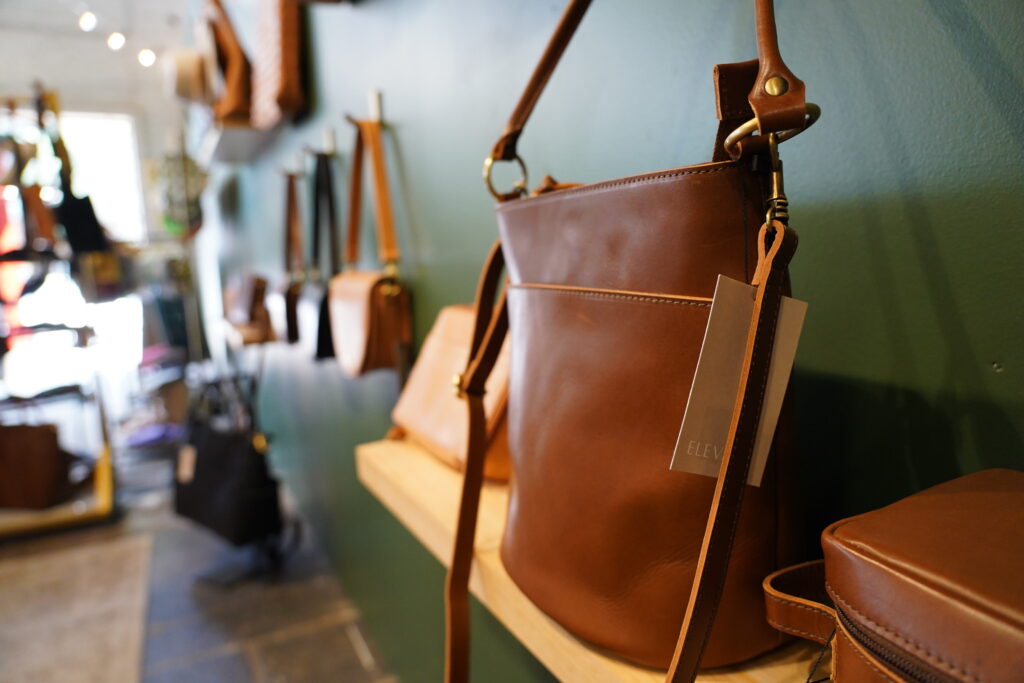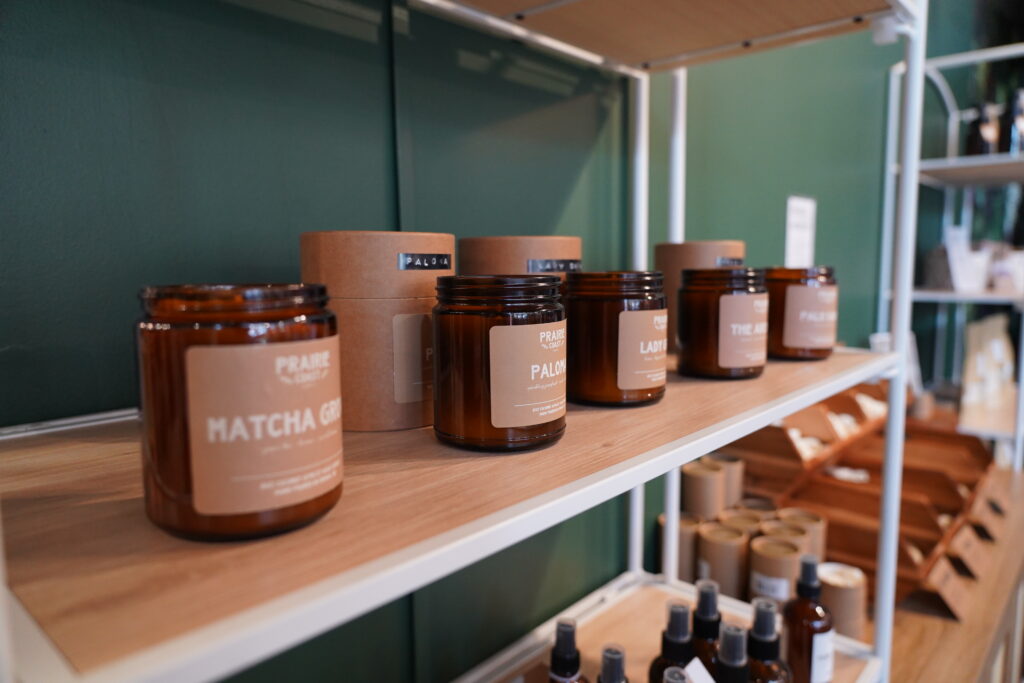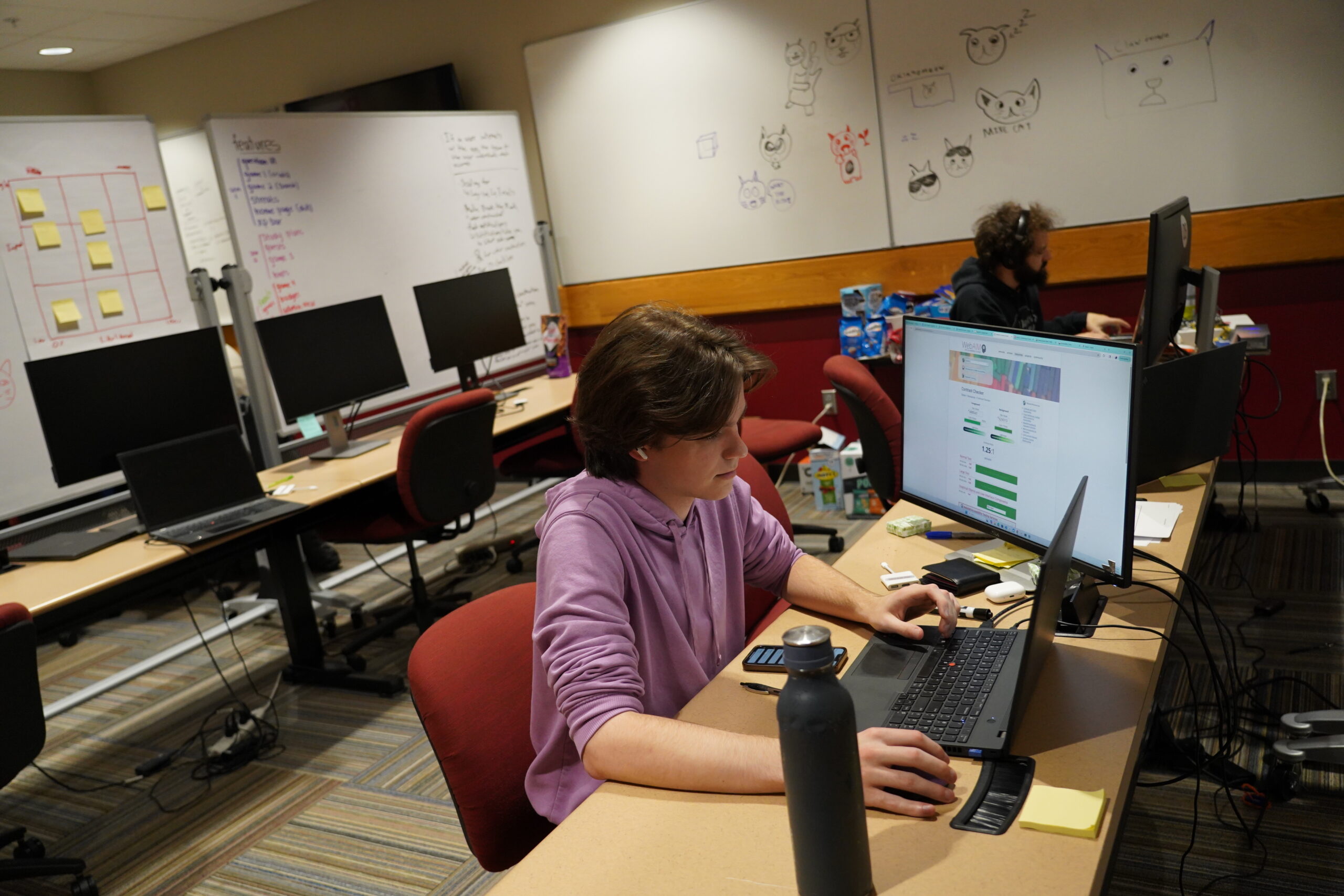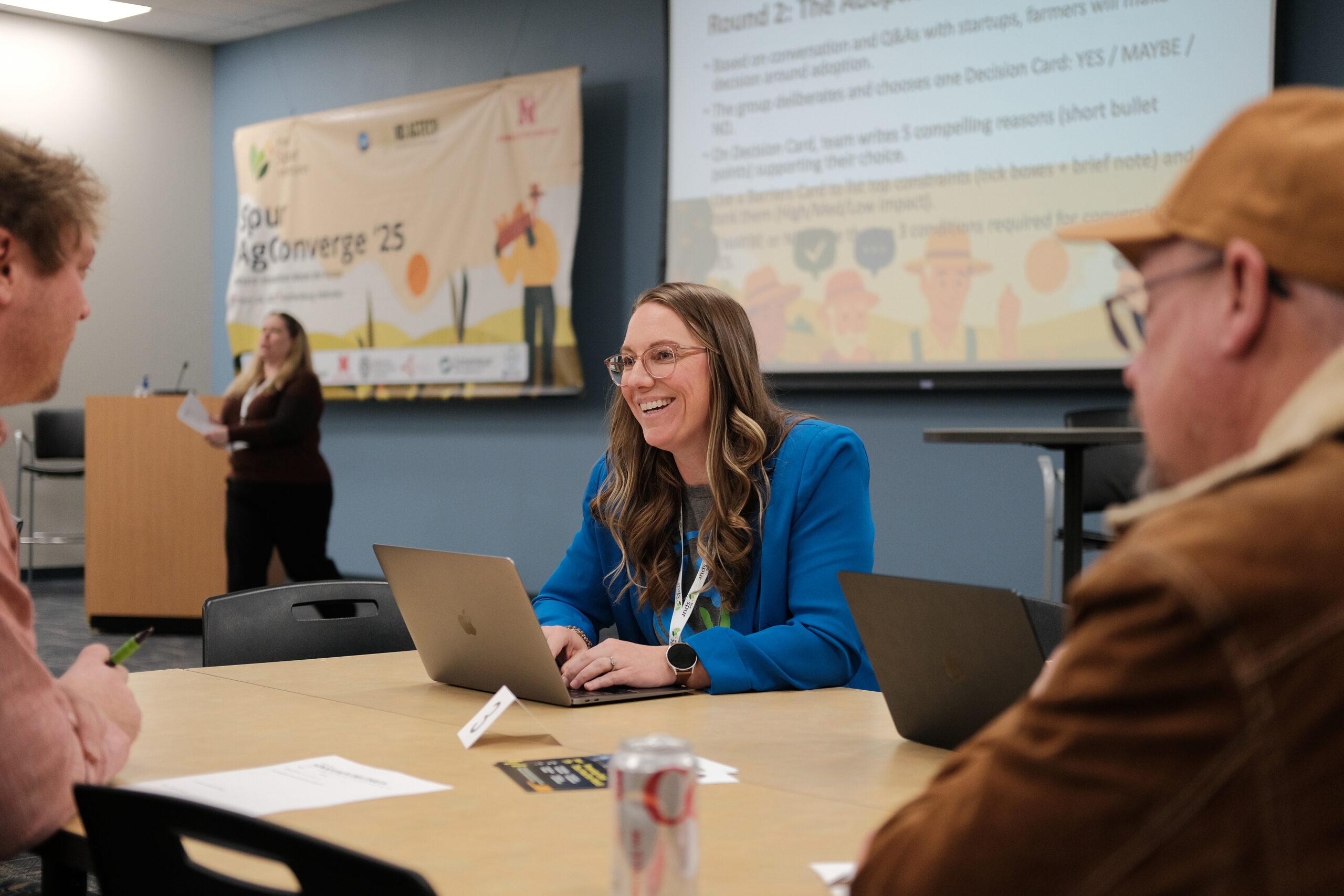A new retail space in Omaha’s Old Market is giving local makers a permanent place to sell their goods without the high costs of running a store alone.
Makers Street, which opened June 7 at 1108 Jackson St., operates as a collaborative storefront for small businesses that create handmade products. Founded by Jenna Majkot, Leigha Atkisson, Kristina Halweg and Karla Smith, the shop currently features six vendors selling items ranging from bath and body care to leather goods. By sharing rent, staffing duties and marketing, the collective lowers barriers for creative entrepreneurs. It keeps locally made products in front of both residents and the steady stream of Old Market visitors.
Origins and purpose
The idea for Makers Street began when a retail space became available and the team at Raygun encouraged founder Majkot to “do something cool” with it. At first, she wasn’t sure. But the conversation sparked a bigger vision: a space where small makers could share resources, reduce costs and still have a physical presence in the heart of the city.
“For me individually, as a small maker… it costs, like, $10,000 to open a store with all the paperwork and legality, and that’s not feasible,” Majkot said. “What if it’s a collaborative initiative? So not every small maker is holding the whole burden.”
Today, Makers Street features products from 1890 Natural Bath Co., Prairie Coast Candle Co., Retro Pop Paper, Milo’s BARKery, Maxy and Elevate, a mix of bath and body care, candles, stationery, dog treats, accessories and handcrafted leather goods. Four of the businesses, 1890 Natural Bath Co., Prairie Coast Candle Co., Retro Pop Paper and Milo’s BARKery, are also co-founders of the space.
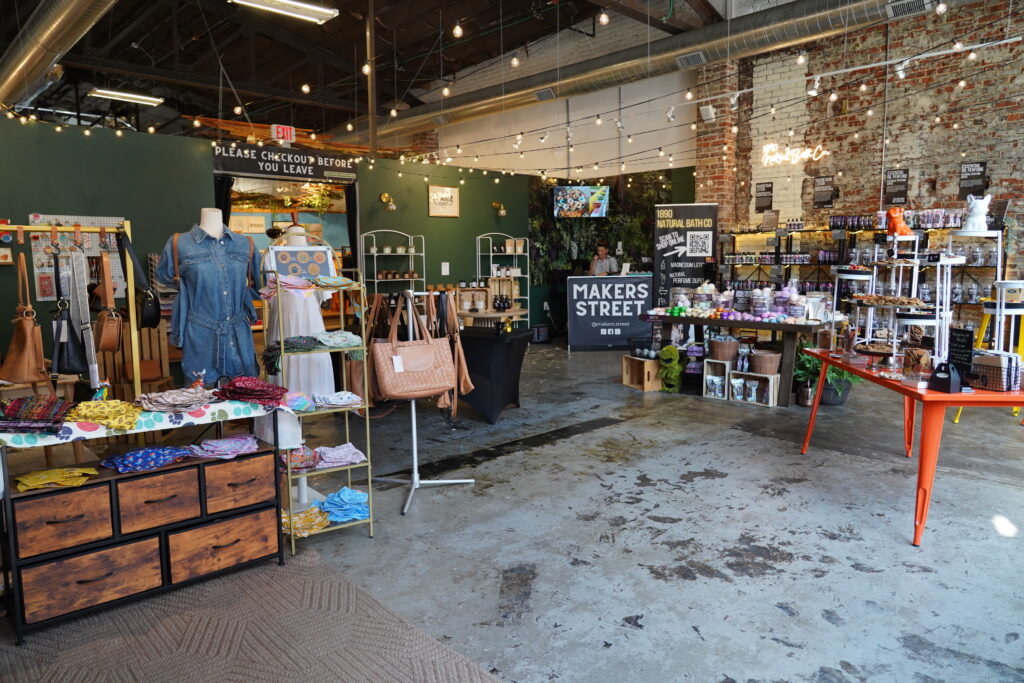
A home in the Old Market
The Old Market Association said spaces like Makers Street are more than just new storefronts, they’re a continuation of the district’s legacy.
“I think the roots of the Old Market are steeped in originality. They’re steeped in studios and creative spaces,” said Billy Coburn, president of the association’s board. “That heritage and that lineage … still continues to feed today and make that kind of the space where this should happen.”
Coburn said collaborative spaces help local artists and entrepreneurs who might not have the resources for a traditional retail lease, offering a lower entry point while giving visitors, both local and out-of-town, the chance to take home something unique.
Far from competing with other creative retailers, such as Made in Omaha down the street, Coburn sees them as complementary. “As long as people are offering individuality and originality, there’s room for more,” he said.
Why physical spaces matter
For many makers, the leap from hobby to business begins in temporary venues like farmers’ markets, holiday pop-ups or weekend craft fairs. While those events build connections, they can also be unpredictable, with weather, booth fees and fluctuating crowds making sales inconsistent.
“It was so unpredictable on everything,” said Atkisson, co-founder of Makers Street and owner of Retro Pop Paper, reflecting on her years selling at markets. “You might do really well one weekend and barely cover your booth fee the next.”
That’s where a permanent retail space changes the equation. Makers Street’s shared storefront means each vendor has year-round visibility without having to be in the shop every day. The collaborative staffing model, with each vendor covering one to two shifts a week, frees up time for makers to focus on creating while still building customer relationships.
Ben Petersen, founder of Omaha makerspace Bench, said lowering those barriers is critical for creative businesses. “The risk of starting up and getting rid of any barrier to entry is … the main thing that we offer,” he said. “One person deciding to start up a shop all on their own… they’re probably not going to be successful for a couple of years, and almost nobody can be unsuccessful at the thing they’re just starting out at for that long. It’s just not feasible for most people.”
Permanent retail spaces, Petersen added, are “phenomenal” for the community because they give makers a place to connect with customers year-round. “People often wish markets were available all the time; spaces like Makers Street make that possible.”
Part of a larger network
Makers Street is one part of a wider web of creative spaces and maker-friendly initiatives across Omaha. From shared workshops to seasonal markets, the city offers multiple entry points for entrepreneurs to test ideas, hone their craft and connect with customers.
Petersen said Omaha’s maker community is “really healthy” and continues to grow. “We see new people coming in … new people starting up all the time,” he said. “Omaha is a pretty easy place for people to try their hand at any startup venture… the community is open, accepting and hospitable for that.”
Spaces like Bench focus on the making side of the process, offering low-cost, flexible leases that allow makers to experiment without the long-term commitment or overhead of a traditional business. Makers Street builds on that foundation by providing a retail outlet, giving artisans a steady, year-round venue to sell their goods.
This mix of production spaces and selling spaces creates a sustainable pipeline for creative entrepreneurs. Makers can start small, even from home, move into a workshop like Bench and eventually secure shelf space in collaborative stores like Makers Street or other local retailers. That layered ecosystem, Petersen said, is what keeps Omaha’s creative economy resilient.
Challenges and opportunities
Running a shared retail space comes with its own balancing act. Each Makers Street vendor contributes to store staffing while managing their own production schedules, inventory and marketing. The collaborative model offers flexibility because no one has to be in the shop full time, but it also requires coordination and a shared commitment to the space’s success.
Coburn said the biggest challenge for many makers is cost. “Most of them have spent their money on their goods and services, so then the amount of funds they have left over for rent or utilities … to rent a major space and take on the responsibility of HVAC and triple net leases … most probably aren’t even aware of that, much less how much that’s going to cost,” he said. Collaborative spaces like Makers Street help overcome that hurdle by splitting rent and responsibilities among multiple businesses.
Despite these challenges, the location and community support give Makers Street an advantage. Its position in the Old Market ensures a steady flow of visitors, both locals and tourists, and the shop’s variety of products encourages repeat visits. For the founders, the real opportunity lies in growing the network of makers and continuing to offer a space where creativity can thrive without the financial risk of going it alone.
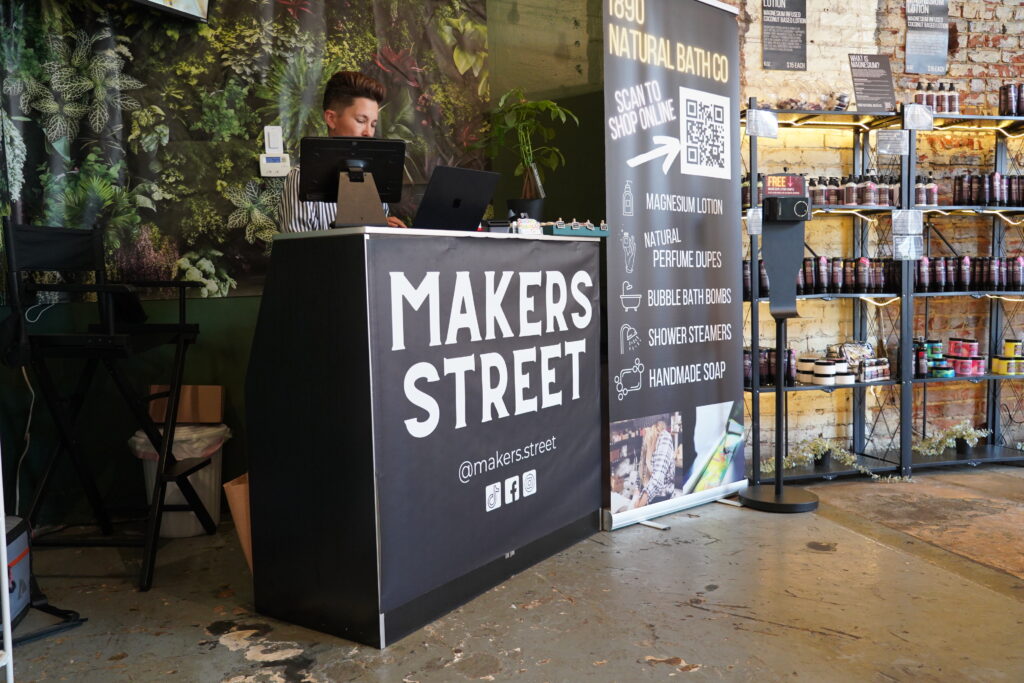
Looking ahead
As the holiday season approaches, Makers Street’s founders are planning for their busiest months yet. Majkot said they’re considering expanding within their current building to create more room for additional vendors and possibly hosting their own Maker Street market. “Maybe we’ll expand, and we’ll have more space for more makers,” she said.
The team is actively looking for two more makers to join the shop in time for the holidays. Vendor spaces start at $200 per month and come with a minimum booth size of 3-by-7 feet. In keeping with the store’s mission, all products must be handmade, and each vendor commits to one or two store shifts per week as part of the collaborative model. Applications are open now at pwoanpit.paperform.co.
With its current lineup and room to grow, Makers Street’s founders hope the shop will continue to be both a launchpad for small businesses and a destination for shoppers seeking locally made, one-of-a-kind items.

